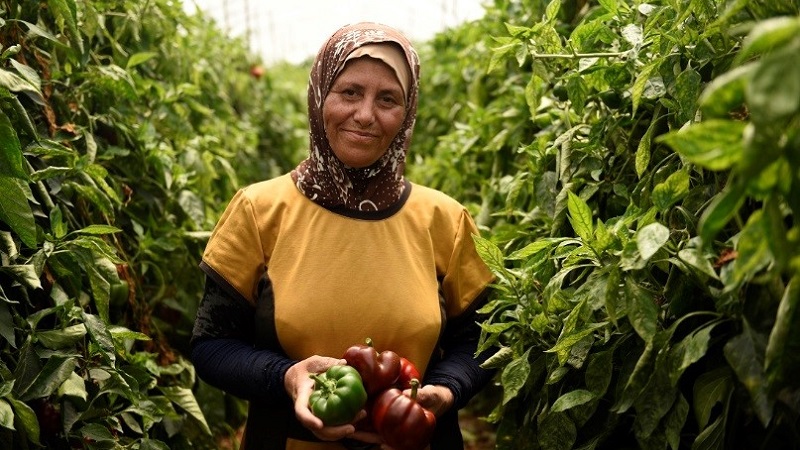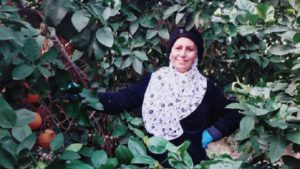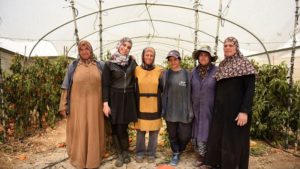The fruit of her hands: Karima’s story from Israel

Olwen Maynard has been at CAFOD for over thirty years. While reviewing project files to see what’s worked and what didn’t, she’s often amazed to see the difference that’s been made to people’s lives. On the International Day of Rural Women, Olwen shares Karima’s story.
Thumbing through CAFOD’s file on the Workers Advice Centre (WAC) in Israel, I was most surprised to see we’ve been supporting their work now for ten years. Roni Ben-Efrat, one of the amazing Israeli women who got WAC started back in the 1990s, argues convincingly that lasting peace in the Middle East is impossible until all the people living there can make a decent living. Many Arab families in the area known as the Triangle, a remote and largely rural part of northern Israel, live below the poverty line. It’s not easy to find jobs at all, and it’s especially hard for housewives and mothers, almost all of whom left school without any qualifications. WAC requested support from CAFOD to help them move into paid employment, and we agreed.
Karima Yahya was in her early forties, with six children old enough not to need her constantly around, and a husband who’d undergone heart surgery and was no longer able to work. With no money coming in, they were sinking further and further into debt. Then she met Wafa Tiara.
Find out more about CAFOD’s work in Israel and the Occupied Palestinian territory
Wafa had been in a very similar situation to Karima’s. She’d got a job on a Jewish-owned farm, but through an Arab contractor who took advantage of the women’s desperation: he paid them only half the legal minimum wage, with no pay slip and no entitlement to benefits, and generally exploited and pushed them around. After a few months Wafa decided she wasn’t going to put up with it, so she joined WAC. WAC’s support helps workers to secure respectful treatment and legal rates of pay, with a proper wage slip. Wafa encouraged Karima to get a job, and also get involved with WAC.
Empowering rural women

The two of them spent the summer picking flowers for a commercial flower farmer. It was backbreaking work – but Karima recalls, “I will never forget the first time I opened a bank account in my life.” She became the family breadwinner, and her life began to change. She met new people and developed new interests. Previously she’d watched the news on telly just to get the weather forecast – now she began seriously wanting to be up-to-date about current affairs. With CAFOD’s help, WAC opened a centre in the Triangle, and Karima started attending empowerment classes organised for rural women like herself. “It was thought-provoking and strengthened me,” she says.
Wafa, who now heads WAC’s local centre, has helped hundreds of women find work. A recent interview with Karima, now a surprisingly youthful-looking grandmother, showed the incredible progress she’d made. Thanks to working part-time in a travel agency she’d learned to use a computer, which led to additional skills and more income. She told us: “Today I encourage other women to work because having a job has changed my life in every respect. When I hear people say they pity a woman who has to work, I say ‘take pity on those who do not work.’”
Set up a regular gift to support CAFOD’s work
Breaking free
“Going to work and taking part in empowerment classes has a positive effect on women who have been stuck for decades in their villages,” added Karima. “It helps them to break free even in the simplest terms. I encourage my daughters to work and to go further than I have. I always tell them that work is women’s ‘winning weapon.’ I am aware that educated women have more interesting jobs and get higher salaries, but a working woman who is not formally educated is not necessarily weak. Work gives her strength!”

The latest news on Karima is that she’d landed a job with “Leket Israel”, Israel’s largest food bank, which collects food that would otherwise be wasted and distributes it to people in need.